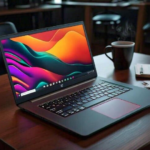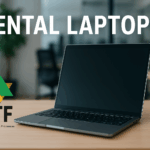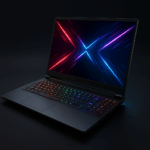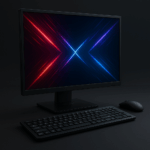
When choosing a new laptop, it can be overwhelming with the many options and features available. However, determining your specific needs and requirements will help you select the right laptop to fit your lifestyle. In this article, you will learn steps to evaluate how you plan to use your laptop and key features to consider such as processor speed, memory, storage, screen size, graphics capability, battery life, and portability.
With the guidance provided, you will gain confidence in making an informed decision to purchase the ideal laptop for your needs.
1. Determine Your Laptop Usage and Needs
- Multi-purpose or Specialized?
- Future-proofing Considerations
- Assess Your Computing Needs
2. How to Choose the Most Suitable Laptop for Your Requirements FAQ
- Types of Laptops
Laptops come in various shapes, sizes and specifications to cater to different user needs. Ultrabooks offer ultra-portability with a sleek design but may compromise on performance. Traditional laptops strike a balance between portability and power. Gaming laptops pack high- end hardware for an immersive gaming experience. 2-in-1 convertible laptops offer tablet mode functionality.
- Laptop Displays
Screen size is a crucial factor – larger screens are great for multimedia but impact portability. Look for higher resolutions like Full HD or 4K for crisper visuals. IPS panels offer wider viewing angles compared to TN panels. Touchscreens add versatility for artists and note-taking.
- Battery Life
If you’ll be working on the go frequently, prioritize laptops with higher battery ratings (8+ hours). Energy-efficient processors, LED backlights and optimized power settings can extend unplugged usage time.
- Laptop Performance
For basic tasks like web browsing and document editing, an entry- level CPU like Intel Core i3 or AMD Ryzen 3 should suffice. Creators and power users will benefit from higher-end Intel Core i5/17 or AMD Ryzen 5/7 CPUs. RAM capacity (8GB minimum recommended) and solid-state drives (SSDs) also impact overall performance.
- RAM (Memory)
RAM determines how many applications and browser tabs you can run simultaneously without slowing down your system. For basic tasks like web browsing and document editing, 4GB RAM should suffice. However, for more intensive multitasking or running memory-hungry software, aim for at least 8GB RAM or higher.
- Storage
This is where your files, programs, and operating system reside. Solid- state drives (SSDs) are faster and more reliable than traditional hard disk drives (HDDs), but they’re also more expensive per gigabyte. A 256GB or 512GB SSD is a good starting point for most users, supplemented with cloud storage if needed.
- Portability vs Power
Slim, lightweight laptops are easier to carry but may not offer the same performance as bulkier models.
Conclusion
Ultimately, choosing the right laptop comes down to aligning your needs and budget. Take the time to reflect on your typical usage – the applications you require, how portable it needs to be, and any other must-have features. Compare specs of models that fit your parameters. Read reviews from trusted sources to gain insight into real-world performance and potential issues. With research and patience, you can select a laptop that checks all of your boxes without breaking the bank, so invest the effort to make the best decision for your unique needs.
- To explore more related topic, visit the link provided below.






